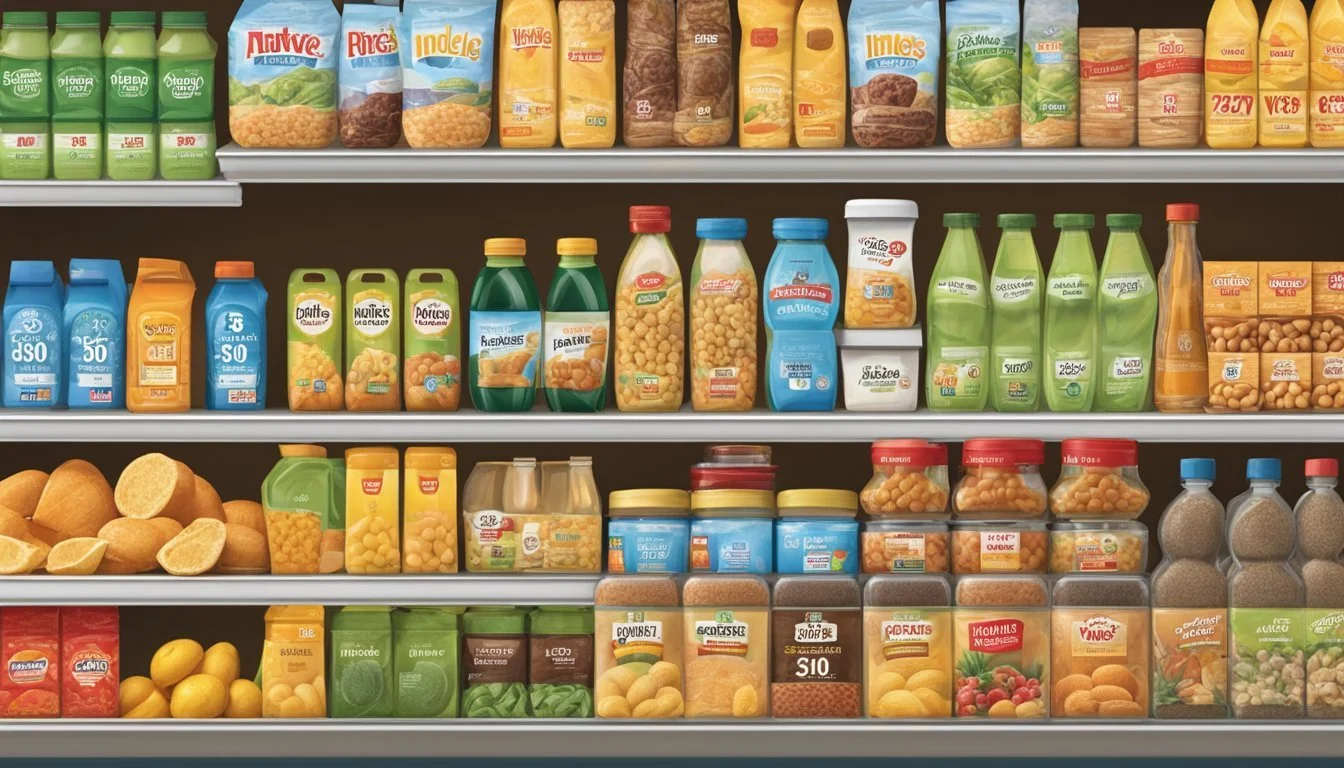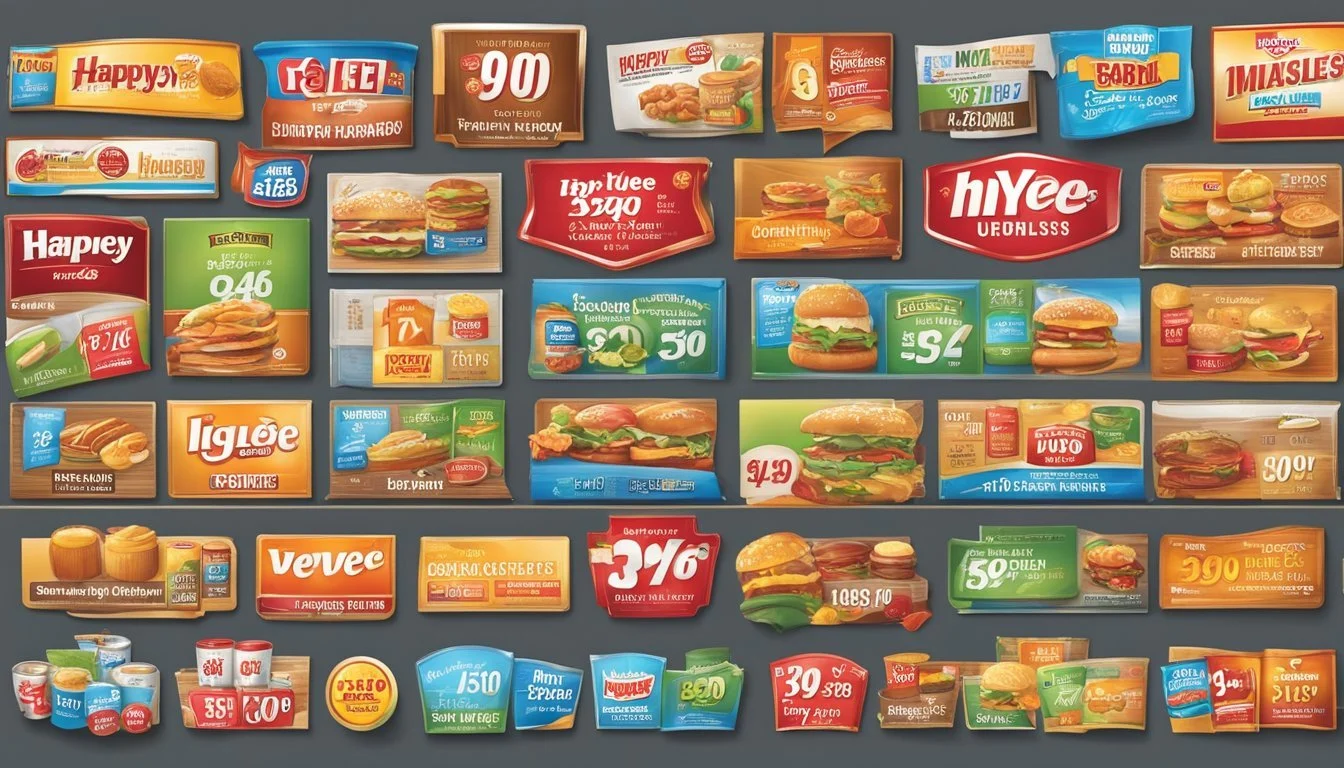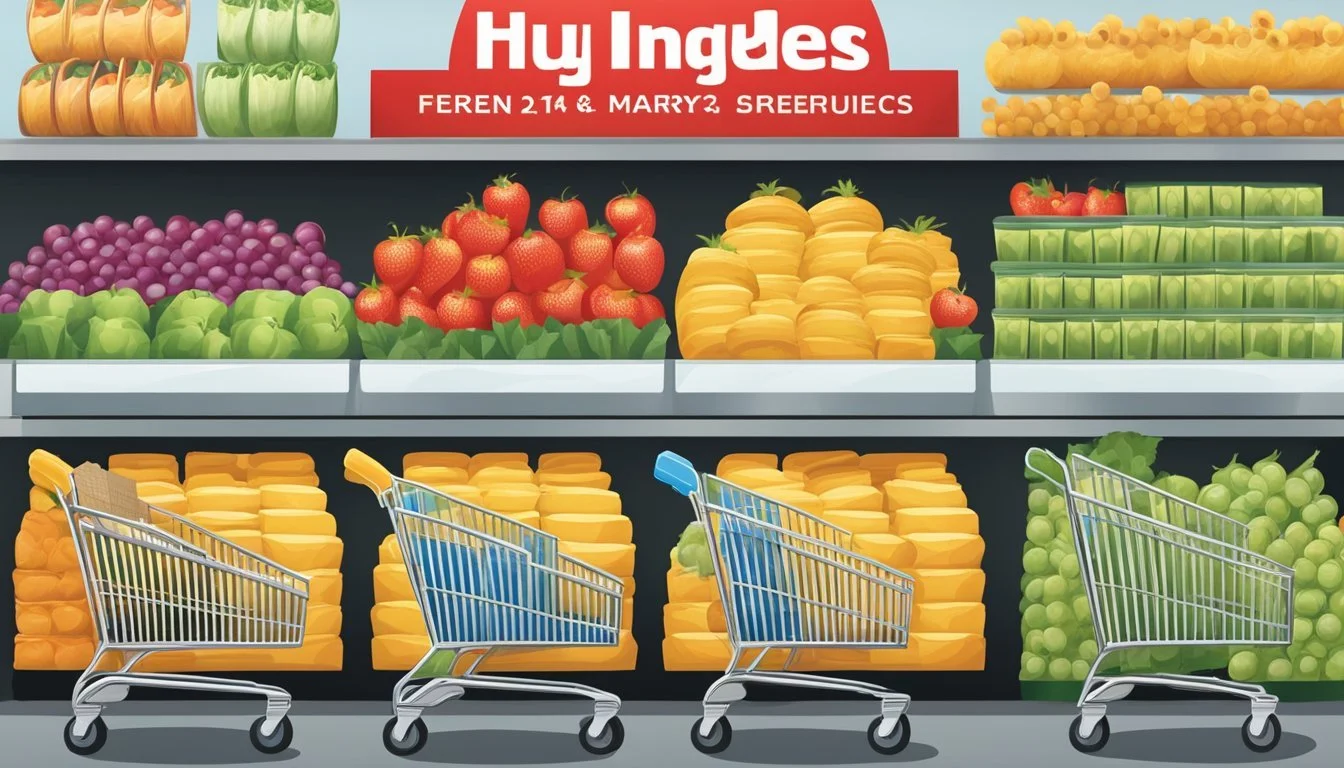Is Hy-Vee Cheaper Than Ingles Markets?
A price comparison of two regional supermarket chains
Grocery shopping is an essential part of everyday life, and finding the best deals can make a significant impact on household budgets. Hy-Vee and Ingles Markets are two popular supermarket chains that cater to different regions of the United States. Comparing prices between Hy-Vee and Ingles Markets reveals that Hy-Vee generally offers lower prices on groceries.
Both supermarkets have their strengths and loyal customer bases. Hy-Vee operates in eight Midwestern states, while Ingles Markets primarily serves the Southeastern region. The price difference between these two chains can vary depending on specific products and locations. Shoppers looking to maximize their savings may benefit from comparing weekly ads and taking advantage of each store's loyalty programs.
When considering overall value, factors beyond just price come into play. Product quality, store atmosphere, and customer service also contribute to the shopping experience. Customers often weigh these aspects alongside cost when choosing where to do their grocery shopping. Ultimately, the decision between Hy-Vee and Ingles Markets may depend on individual preferences and priorities.
Company Backgrounds
Hy-Vee and Ingles Markets are both prominent supermarket chains with rich histories. Each company has evolved over decades to become significant players in their respective regions.
History of Hy-Vee
Hy-Vee was founded in 1930 by Charles Hyde and David Vredenburg in Beaconsfield, Iowa. The company began as a small general store and has since grown into a major Midwestern supermarket chain.
In 1952, Hy-Vee adopted its current name, derived from its founders' surnames. The company expanded rapidly throughout the 1960s and 1970s, opening stores across Iowa and neighboring states.
Hy-Vee entered new markets in the 1980s, including Lincoln and Omaha, Nebraska. In 1988, the chain expanded to Kansas with a store in Overland Park.
Today, Hy-Vee operates over 280 stores across eight Midwestern states. The company is known for its employee ownership model and diverse offerings, including in-store dining and specialty departments.
History of Ingles Markets
Ingles Markets was founded in 1963 by Robert Ingle in Asheville, North Carolina. The company started with a single store and has since grown into a regional supermarket chain.
Throughout the 1970s and 1980s, Ingles Markets expanded its presence across the Southeastern United States. The company focused on serving smaller communities and rural areas often overlooked by larger chains.
Ingles Markets went public in 1987, listing on the NASDAQ stock exchange. This move provided capital for further expansion and modernization efforts.
The company has maintained its family-owned roots, with Robert Ingle's son Robert Ingle II serving as CEO since 2011. Today, Ingles Markets operates over 200 stores across six Southeastern states, known for its focus on fresh products and community involvement.
Overall Pricing Strategies
Hy-Vee and Ingles Markets employ distinct pricing approaches to attract and retain customers. Their strategies reflect different market positions and target demographics.
Hy-Vee Pricing Structure
Hy-Vee focuses on competitive pricing, especially for store-brand items. These products often match national brands in quality while maintaining affordability.
Hy-Vee uses a mix of everyday low prices and weekly discounts. This approach aims to provide value across various product categories.
The chain frequently offers loss leaders - items priced below cost to draw customers. These deals typically rotate, encouraging repeat visits.
Hy-Vee's pricing can vary between locations. This allows stores to adjust to local market conditions and competition.
Ingles Markets Pricing Structure
Ingles Markets positions itself as a mid-range grocery option. Their prices generally fall between discount chains and upscale markets.
The company emphasizes regular sales and promotions. Weekly circulars feature discounted items across departments.
Ingles' store brands offer cost-effective alternatives to national brands. These products help budget-conscious shoppers save money.
Price comparison programs at Ingles aim to match competitors' advertised prices. This strategy helps retain price-sensitive customers.
Seasonal pricing adjustments are common at Ingles. Prices often reflect local produce availability and market fluctuations.
Product Range and Quality
Hy-Vee and Ingles Markets offer diverse product selections with varying emphasis on quality and freshness. Both chains strive to meet customer needs across multiple departments.
Comparing Produce Selection
Hy-Vee places a strong emphasis on its produce department, offering a wide variety of fresh fruits and vegetables. The chain is known for its commitment to quality, often sourcing locally when possible. Hy-Vee's produce sections typically feature a robust organic selection, catering to health-conscious shoppers.
Ingles Markets also maintains a respectable produce department. While their organic options may be more limited compared to Hy-Vee, Ingles focuses on providing fresh, seasonal produce at competitive prices. Both stores offer pre-cut fruit and vegetable options for customer convenience.
Meat and Seafood Offerings
Hy-Vee's meat department is often praised for its quality and variety. The chain offers a range of cuts, including prime and choice grades. Their seafood counters typically feature both fresh and frozen options, with an emphasis on sustainably sourced products.
Ingles Markets competes in this area with a solid selection of meats and seafood. They often highlight locally sourced meats when available. Ingles' seafood departments may vary by location but generally offer both fresh and frozen choices to meet customer needs.
Dairy and Bakery Overview
Hy-Vee's dairy section is comprehensive, featuring both national brands and private label options. Their bakery departments are known for producing a variety of fresh bread, pastries, and cakes daily. Many Hy-Vee stores include in-store cake decorators for custom orders.
Ingles Markets maintains competitive dairy sections with a focus on regional brands alongside national options. Their bakeries offer fresh-baked goods, often including specialty items like artisan breads. Ingles also provides custom cake services at many locations.
Store Experience and Services
Hy-Vee and Ingles Markets offer distinct shopping experiences with varying amenities and services. Both chains prioritize customer satisfaction but differ in their approach to store layout, checkout processes, and additional offerings.
Store Layout and Cleanliness
Hy-Vee stores are known for their spacious layouts and well-organized aisles. Products are typically arranged in logical categories, making navigation easy for shoppers. The chain emphasizes cleanliness, with regular maintenance schedules to ensure a hygienic shopping environment.
Ingles Markets also maintains clean stores but may have a more traditional supermarket layout. Some locations feature wider aisles and updated décor, while others retain a more classic feel. Both chains stock a wide variety of products, though Hy-Vee often includes larger health food and organic sections.
Checkout Efficiency
Hy-Vee invests in technology to streamline the checkout process. Many stores offer self-checkout options and mobile payment solutions. Cashiers are generally well-trained and efficient, minimizing wait times during peak hours.
Ingles Markets provides a mix of traditional and self-checkout lanes. While checkout efficiency can vary by location, the chain strives to maintain adequate staffing during busy periods. Some Ingles stores have implemented newer point-of-sale systems to speed up transactions.
Additional Amenities and Services
Hy-Vee excels in offering a wide range of additional services. Many locations include:
In-store pharmacies
Floral departments
Wine and spirits sections
Prepared food stations with dining areas
Fuel stations
These amenities position Hy-Vee as a one-stop shop for many customers. Ingles Markets also provides several extra services, though the offerings may be less extensive:
Pharmacies in select locations
Fuel centers at some stores
Floral departments
Basic banking services through Ingles Advantage Card
Both chains offer online ordering and pickup services, catering to customers who prefer convenience and time-saving options.
Customer Perceptions and Reputation
Hy-Vee and Ingles Markets have distinct reputations among consumers. Brand loyalty and customer satisfaction surveys provide insights into how shoppers view these grocery chains.
Brand Loyalty
Hy-Vee's brand loyalty falls within a range of -0.5 to 0.5, indicating relatively low customer allegiance. This suggests shoppers may not have strong emotional connections to the brand.
Ingles Markets, on the other hand, has fostered a favorable perception among its users. The company's focus on regional operations may contribute to a sense of local loyalty.
Customer Satisfaction Surveys
Consumer Reports and other researchers conduct surveys to gauge customer satisfaction with grocery stores. These studies often evaluate factors like cleanliness, product quality, and customer service.
Hy-Vee has received recognition for its commitment to customer service and health-focused initiatives. The chain's variety of products and in-store experiences have garnered positive ratings from consumers.
Ingles Markets' customer satisfaction data is less widely reported. However, the company's continued growth suggests it maintains a positive reputation among its shoppers in the Southeastern United States.
Discounts, Deals, and Savings Programs
Both Hy-Vee and Ingles Markets offer various ways for customers to save money on groceries. These include loyalty programs, digital coupons, and weekly sales that help shoppers reduce their bills.
Loyalty Programs Comparison
Hy-Vee's Fuel Saver + Perks program rewards customers with discounts on fuel and exclusive offers. Members earn points on purchases that translate to cents off per gallon at Hy-Vee gas stations.
Ingles Markets features the Ingles Advantage Card. This program provides cardholders with special discounts and personalized offers based on shopping habits. The card is free to obtain and use.
Both loyalty programs are user-friendly and don't require complicated sign-up processes. Shoppers can easily track their rewards through mobile apps or online accounts.
Coupon and Sale Strategies
Hy-Vee and Ingles Markets embrace digital coupons, accessible through their respective mobile apps and websites. These coupons often feature discounts on both national brands and store-brand products.
Weekly sales circulars are available from both chains, highlighting temporary price reductions. Hy-Vee's "Fuel Saver Items" offer additional savings on gas with specific product purchases.
Ingles Markets frequently runs "Buy One, Get One" promotions on various items. They also offer "10 for $10" deals on select products, allowing mix-and-match purchases.
Both stores emphasize their private-label brands as budget-friendly alternatives. Hy-Vee's "That's Smart!" and Ingles' "Laura Lynn" lines provide quality products at lower price points compared to national brands.
Comparative Analysis of Other Grocery Chains
Grocery chains vary widely in pricing and offerings. Comparing Hy-Vee and Ingles Markets to other major retailers reveals interesting insights into value and selection across the industry.
Hy-Vee and Ingles Markets vs. Walmart and Target
Walmart typically offers lower prices than Hy-Vee and Ingles Markets on many items. A CBS News report found Walmart provided the best overall value among major chains studied. Target often falls between Walmart and traditional grocers in pricing.
Hy-Vee and Ingles Markets may offer more regional and specialty products than these big-box retailers. They also tend to have more robust deli and bakery departments.
Pricing on staples like milk can vary. For example, a gallon of milk at Hy-Vee may cost $3.29, while other chains might price it slightly lower.
Comparison with Specialty Stores like Whole Foods
Whole Foods typically has higher prices than Hy-Vee or Ingles Markets. However, it offers a wider selection of organic and specialty items.
Stores like Trader Joe's and Sprouts Farmers Market fall between conventional grocers and Whole Foods in pricing. They focus on unique private-label products and fresh produce.
Regional chains like Wegmans and H-E-B often compete well on both price and quality with national chains. They frequently top customer satisfaction surveys.
Discount chains like Aldi and Lidl generally undercut Hy-Vee and Ingles Markets on price, but offer a more limited selection of mostly private-label goods.
Strategies for Cost-Effective Shopping
Smart shopping techniques can help consumers save money at both Hy-Vee and Ingles Markets. These strategies focus on careful planning and making informed choices.
Budgeting for Grocery Shopping
Creating a grocery budget is essential for managing food expenses. Start by tracking spending for a month to understand typical costs. Allocate a realistic amount for groceries based on income and other expenses.
Make a detailed shopping list before visiting the store. This helps avoid impulse purchases and ensures all necessary items are covered. Stick to the list to prevent overspending.
Plan meals in advance to reduce food waste and unnecessary purchases. Consider incorporating affordable, nutritious foods like beans, rice, and seasonal produce into meal plans.
Maximizing Value with Store Brands
Store brands often offer significant savings compared to national brands. Both Hy-Vee and Ingles Markets have their own private label products.
Compare ingredients and nutritional information between store brands and name brands. In many cases, the quality is comparable, but the price is lower.
Look for sales on store brand items to maximize savings. Stock up on non-perishable staples when they're discounted.
Try store brand versions of common household essentials like paper products, cleaning supplies, and pantry staples. This can lead to substantial savings over time.
Be open to experimenting with different store brand products. If one doesn't meet expectations, try another or return to the name brand for that item.
Conclusion
Based on the available information, determining whether Hy-Vee is cheaper than Ingles Markets is not straightforward. The search results don't provide direct comparisons between these two specific chains.
Hy-Vee's prices tend to be higher than some competitors like Walmart. However, Hy-Vee often offers sales that can make their prices more competitive.
Walmart consistently emerges as one of the cheapest grocery options across multiple comparisons. Its prices are typically 11-20% lower than average.
For budget-conscious shoppers, stores like Walmart, Target, and Fresh Thyme generally offer lower prices than traditional supermarket chains.
Ultimately, prices can vary by location, season, and specific items. Shoppers may find the best value by comparing prices on their commonly purchased items at local stores.
Factors beyond price, such as product quality, store atmosphere, and customer service, may also influence where customers choose to shop.











